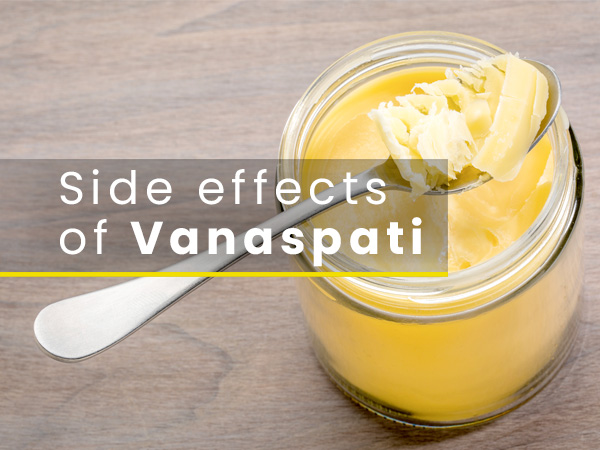Just In
- 2 hrs ago

- 3 hrs ago

- 4 hrs ago

- 5 hrs ago

Don't Miss
- Movies
 Maidaan Box Office Collection Day 4 Prediction: Ajay’s Film To Cross 20Cr ; Will It Beat Shaitaan?
Maidaan Box Office Collection Day 4 Prediction: Ajay’s Film To Cross 20Cr ; Will It Beat Shaitaan? - Sports
 Anderson Silva vs Chael Sonnen Fight At UFC 117 Inducted Into Hall Of Fame Class Of 2024
Anderson Silva vs Chael Sonnen Fight At UFC 117 Inducted Into Hall Of Fame Class Of 2024 - Finance
 Buy/Sell: 2 Swing Trading Calls By VLA Ambala For Monday, 15th April
Buy/Sell: 2 Swing Trading Calls By VLA Ambala For Monday, 15th April - Automobiles
 Essential Tips: Extend Car Battery Life
Essential Tips: Extend Car Battery Life - Travel
Maximise Your First Indian Adventure With These Travel Tips
- News
 Jerusalem Under Attack: Iranian Drones Signal Escalating Middle East Tensions
Jerusalem Under Attack: Iranian Drones Signal Escalating Middle East Tensions - Education
 Discover the Top Medical Universities Abroad for Your Future Success
Discover the Top Medical Universities Abroad for Your Future Success - Technology
 The Google Pixel 8a Has Leaked in All Four Gorgeous Colors - Check Them Out!
The Google Pixel 8a Has Leaked in All Four Gorgeous Colors - Check Them Out!
What Are The Adverse Effects Of Vanaspati?
Vanaspati is hydrogenated vegetable oil (fully or partially) which is solid at room temperature and has a better shelf life, flavour, physical properties and stability. As it is hydrogenated industrially, it contains a significant amount of trans fatty acids which is associated with a high risk of cardiovascular diseases.

The trans fatty acid content in vanaspati accounts for around 60 per cent, which is much greater than the fatty acid content in meat (especially beef) and dairy products with 2-5 per cent. Though some amount of fats is necessary for the body to function properly, a high amount of it, especially from hydrogenated oils or other processed sources, can increase the risk of obesity, heart disease and diabetes. [1]
In this article, we will discuss the side effects of vanaspati. It is advised to keep a note of all the side effects mentioned below and avoid the consumption of vanaspati in large quantities.


1. Heart diseases
Increased consumption of trans fatty acids is directly related to the risk of cardiovascular diseases. This is because trans fats increase the ratio of LDL cholesterol to HDL cholesterol or say, bad to good cholesterol levels. According to the WHO, the content of trans fats in the diet should be less than 4 per cent. A study says that in India, vanaspati contains more than 40-50 per cent of trans fatty acids. [2]
2. Breast cancer
Saturated fatty acids (SFA) are considered harmful for the body as they tend to increase the total and LDL cholesterol levels. However, short- and medium-chain SFA, such as those found in coconut oil are not considered harmful as they do not affect the serum lipids. On the other hand, trans fatty acids found in vanaspati cause undesirable effects on serum lipids, which is why it is considered worse than saturated fats due to its immediate link to the risk of heart diseases. [3]
3. Preeclampsia
Vaccenic acid and elaidic acid are the two prominent dietary trans fatty acids. A study talks about the association between maternal dietary intake of trans fats and increased risk of preeclampsia in relation to elaidic acid. High intake of trans fats during pregnancy can increase the content of elaidic acid in the body, which in turn, can increase the risk of pregnancy complications such as preeclampsia, a condition characterised by high blood pressure and damage to vital organs. [4]
4. Vision problems in infants
Long-chain polyunsaturated fatty acids (linoleic acid) are responsible for the growth and development of vision and the nervous system in a foetus. A study says that trans fatty acids inhibit the formation of linoleic acid from their precursor and thus, may cause deficiency of this good fatty acid, leading to vision problems in infants. [5]


5. Obesity
Higher intake of trans fats cause abdominal fat deposits and increase weight gain. Though trans fatty acids produced industrially and those from plant and animal sources contain the same amount of calories, the prior is related to increased body weight and abdominal fat. [6]
6. Diabetes
Trans fatty acids interfere with the functions of the cell membrane and cause insulin insensitivity, resulting in diabetes. Also, the low consumption of trans fats for a prolonged period is related to the risk of diabetes. A study says that insulin insensitivity caused by trans fatty acids is more compared to those caused by unsaturated fats. The presence of conjugated linoleic acid in the prior is said to be the main cause for its adverse effect. [7]
7. Nervous system disorders
Trans fats can cause adverse effects on the brain and nervous system. They get deposited in the cell membranes of the brain and alter the ability of neurons to communicate with each other, thus causing micro-failures in brain functioning and increasing the risk of Alzheimer's, dementia and depression. Decrease consumption of vanaspati or trans fats can decrease the risk of cognitive decline and nervous system disorders. [8]
8. Allergy
High consumption of trans fatty acids is positively associated with an increased risk of allergy or related conditions such as asthma, eczema and allergic cold, especially in children over 13-14 years of age, says a study. The same study also brings out the point that such association is not similar to monosaturated and polyunsaturated fatty acids. [9]


10. Colon cancer
A study says that people over 67 and not under any non-steroidal anti-inflammatory drugs are at a 50 per cent increased risk of developing colon cancer due to the high consumption of trans fatty acids. It can alter the immune response, prostaglandin synthesis and cell wall integrity, thus increasing the risk of cancer such as colon cancer. [10]

11. Inflammation
Several studies suggest that inflammatory cytokines in the body increase with high consumption of trans fats, especially in people with obesity or excess abdominal fats. This results in an increased risk of inflammatory conditions such as oedema, diabetes, autoimmune diseases and many others.
Common FAQs
1. Is dalda harmful?
Dalda is a popular brand that makes hydrogenated vegetable oils and ghee. It is considered harmful due to the high content of trans fatty acids which can increase the risk of heart diseases, obesity, diabetes and many other inflammatory diseases.
2. Is vanaspati and dalda same?
Dalda is a popular brand involved in the making of vanaspati, a hydrogenated oil usually made from the palm tree.
3. What is vanaspati made of?
Vanaspati is a partially hydrogenated cooking oil made from palm oil extracted from the palm tree. It is widely used as a substitute for butter and ghee due to their high melting point, stability and pocket-friendly cost.
-
 healthExclusive: World Oral Health Day 2024: Doctor Shares How Diabetic Patients Can Maintain Their Oral Health
healthExclusive: World Oral Health Day 2024: Doctor Shares How Diabetic Patients Can Maintain Their Oral Health -
 healthWhat Is VIP? It Is Not What You Think! This One Is Connected To Blood Glucose, Here's What You Need To Know
healthWhat Is VIP? It Is Not What You Think! This One Is Connected To Blood Glucose, Here's What You Need To Know -
 pregnancy parentingWhat Are The 4 Must Have Vitamins For Kids With Diabetes?
pregnancy parentingWhat Are The 4 Must Have Vitamins For Kids With Diabetes? -
 healthDoes This Everyday Cooking Ingredient Trigger Diabetes?
healthDoes This Everyday Cooking Ingredient Trigger Diabetes? -
 healthRoller Coaster Effect In Diabetes: Why Does My Blood Sugar Level Go Up And Down, How To Stop It
healthRoller Coaster Effect In Diabetes: Why Does My Blood Sugar Level Go Up And Down, How To Stop It -
 healthSinger Shakira Loves These 2 Indian Sweets! How To Make It Diet-Friendly?
healthSinger Shakira Loves These 2 Indian Sweets! How To Make It Diet-Friendly? -
 healthWorld Diabetes Day 2023: 3 Weird Things That Can Put You At Risk Of Developing Diabetes
healthWorld Diabetes Day 2023: 3 Weird Things That Can Put You At Risk Of Developing Diabetes -
 healthWorld Diabetes Day 2023: Daily Habits That Make One At Risk Of Diabetes
healthWorld Diabetes Day 2023: Daily Habits That Make One At Risk Of Diabetes -
 wellnessWorld Diabetes Day 2023: Avoid These Common Mistakes When Testing Blood Sugar Levels
wellnessWorld Diabetes Day 2023: Avoid These Common Mistakes When Testing Blood Sugar Levels -
 healthDiwali 2023: Kalakand Recipe For Diabetic People; It Is Sugar-Free & Keto-Friendly
healthDiwali 2023: Kalakand Recipe For Diabetic People; It Is Sugar-Free & Keto-Friendly -
 healthHow Poor Air Quality During Can Raise Your Diabetes Risk
healthHow Poor Air Quality During Can Raise Your Diabetes Risk -
 healthWhip Up These 3 Diwali Sweets For Your Diabetic Mom Over 40
healthWhip Up These 3 Diwali Sweets For Your Diabetic Mom Over 40


 Click it and Unblock the Notifications
Click it and Unblock the Notifications



